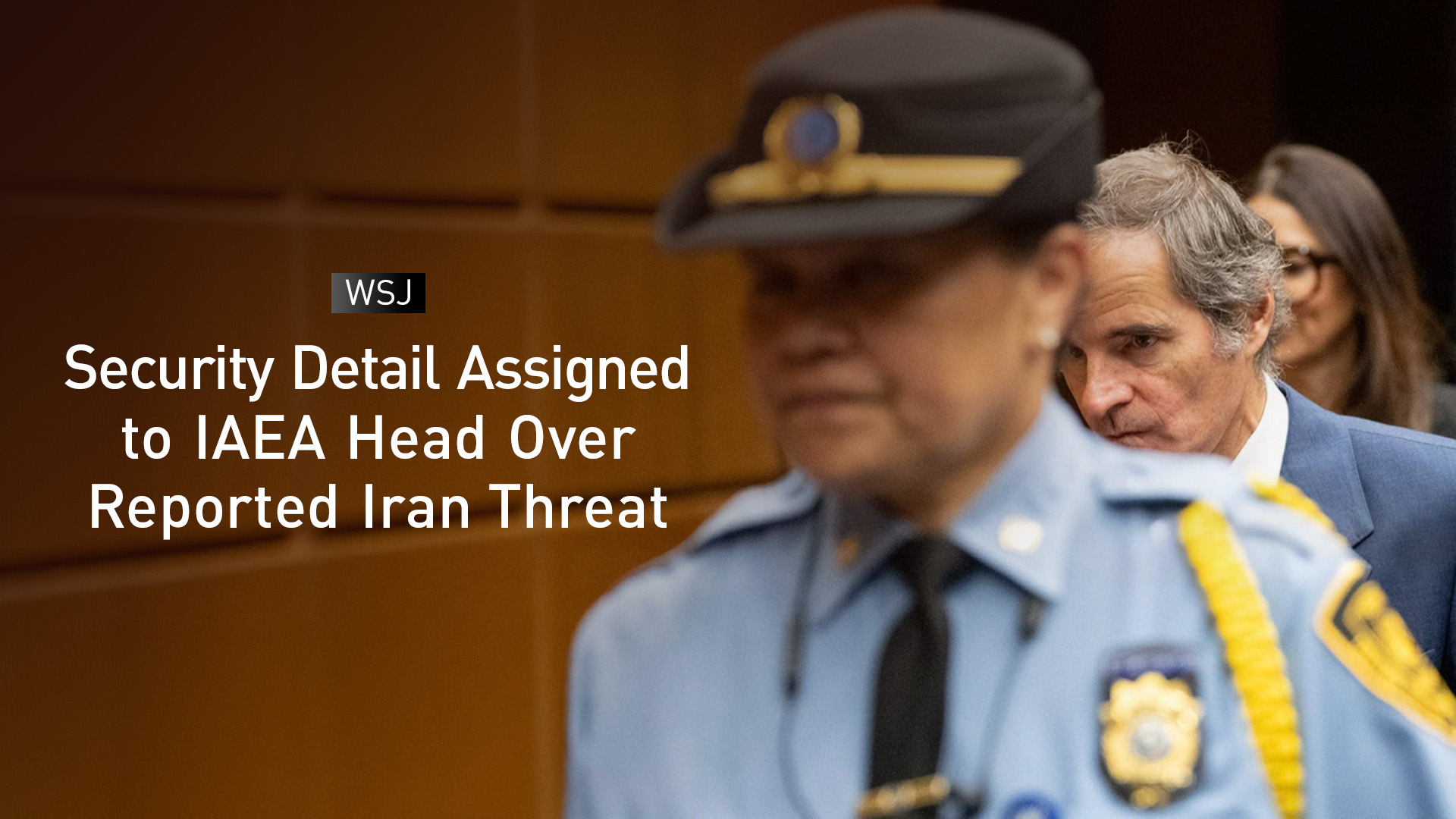U.N. Nuclear Watchdog Chief Gets Security Detail After Iran Threat: WSJ
IAEA chief Rafael Grossi is under elite Austrian protection due to a specific Iranian threat. The security measure follows Tehran's accusations that his reports sparked the June war with Israel, as inspectors now make a tentative return to Iran amid a UN sanctions deadline.

ERBIL (Kurdistan24) — The Director General of the International Atomic Energy Agency, Rafael Grossi, has been receiving round-the-clock protection for weeks from an elite Austrian security unit following what people familiar with the matter describe as a specific threat from Iran, The Wall Street Journal has reported. The heightened security measures come as IAEA inspectors begin a tentative return to Iran for the first time since being evacuated during the 12-day war with Israel in June, a conflict Tehran has accused Mr. Grossi of helping to incite.
According to a person involved in the case cited by The Wall Street Journal, Austria’s elite Cobra special services unit was deployed to protect Mr. Grossi after the country’s intelligence agency received information of a threat to the IAEA chief.
The tactical force, which is based in Vienna alongside the IAEA, is typically assigned to counter the gravest threats, such as terror plots. A person familiar with the matter told the Journal that the Austrian authorities acted on intelligence outlining a specific threat to Mr. Grossi coming from Iran-linked individuals.
An IAEA spokesman, Fredrik Dahl, confirmed the security arrangement, stating, “We can confirm that Austria provided a Cobra unit but we cannot confirm where the specific threat came from.” An Austrian Interior Ministry spokesman declined to comment, and there was no comment from the Iranian mission in New York.
The threats followed a period of intense criticism from Tehran.
After the start of Israel’s attacks on Iran in June, Iranian officials claimed that Mr. Grossi was coordinating with Israel and attacked him for what they called promoting baseless claims about Iran’s nuclear activities.
The Wall Street Journal reported that Iran accused Mr. Grossi of helping spark the war, saying his reports were biased.
Public threats have been sharp, with Ali Larijani, a senior aide to Iranian Supreme Leader Ayatollah Ali Khamenei, writing on X, “When the war ends, we are going to deal with Grossi.”
جنگ تمام شود به حساب گروسی خواهیم رسید.
— Ali Larijani | علی لاریجانی (@alilarijani_ir) June 21, 2025
A senior Iranian judicial official suggested the IAEA chief could face a trial in absentia. The semiofficial Kayhan newspaper labeled Mr. Grossi an Israeli spy and called for him to be detained and executed.
In a recent report, Fox News noted that U.S. Secretary of State Marco Rubio called the alleged threats "unacceptable and should be condemned," adding, "We call on Iran to provide for the safety and security of IAEA personnel."
The backdrop to these events is the precarious state of the 2015 nuclear deal, or Joint Comprehensive Plan of Action (JCPOA).
The accord was severely weakened in 2018 when then-President Donald Trump unilaterally withdrew the U.S. and re-imposed sanctions. In response, Iran has gradually expanded its nuclear program beyond the JCPOA’s limits, building up enough near weapons-grade enriched uranium by June to fuel around 10 nuclear weapons, according to The Wall Street Journal.
European signatories to the deal have threatened to trigger the so-called “snapback mechanism” before an October deadline, which would restore all UN sanctions against Tehran. High-stakes talks were held in Geneva, where Iran’s deputy foreign minister, Kazem Gharibabadi, stated on X that it was “high time” for the European trio “to make the right choice and give diplomacy time and space.”
The June war derailed indirect talks between Tehran and Washington and led Iran to suspend cooperation with the UN watchdog.
During that conflict, Mr. Grossi pulled IAEA inspectors out of Iran in a discreet operation done with Tehran’s consent due to safety concerns. In a recent interview with Fox News, Mr. Grossi confirmed the withdrawal, stating, “when the attacks began, it was obvious that there was inspection work was not possible. There was wartime, actually.”
He has now confirmed that a first team of inspectors is back in Iran, though their access to nuclear sites still needs to be resolved. “We are discussing what kind of modalities, practical modalities can be implemented, um, in order to facilitate the restart of our work there,” he told Fox News.
This work is seen as critical, especially after U.S. airstrikes on key nuclear sites.
Speaking on Fox News, Mr. Grossi previously stated that the Natanz facility showed “very serious damage” and alleged that 900 pounds of potentially enriched uranium had been moved from a site near Isfahan. While he clarified that the IAEA did not have information on its whereabouts, he stressed, “My job is to try to see where is this material, because Iran has an obligation to report and account for all the material that they have.”
Mr. Grossi told Fox News that he has been meeting with senior Trump administration officials in Washington, including special envoy Steve Witkoff. He stated that for the United States, IAEA monitoring is very important “in order to consider, um, whether, uh, bilateral negotiations that were taking place, you remember, before the attacks, could resume or not.” He emphasized that the work of his inspectors is “indispensable” for any serious negotiation.
The decision by European powers on whether to reimpose sanctions also hinges on Iranian cooperation.
When asked about a timeline, Mr. Grossi noted that European actors are considering the move very seriously and that “one of the things they want to see is whether they are cooperating with with the IAEA.” According to The Wall Street Journal, Mr. Grossi has told people in recent days that the round-the-clock protection has transformed his normal life and that he has been told to take the threat very seriously.
